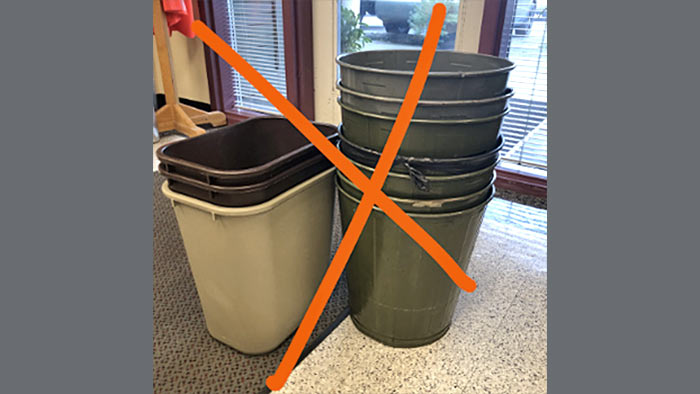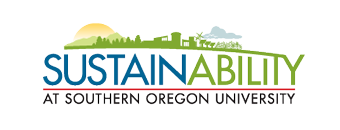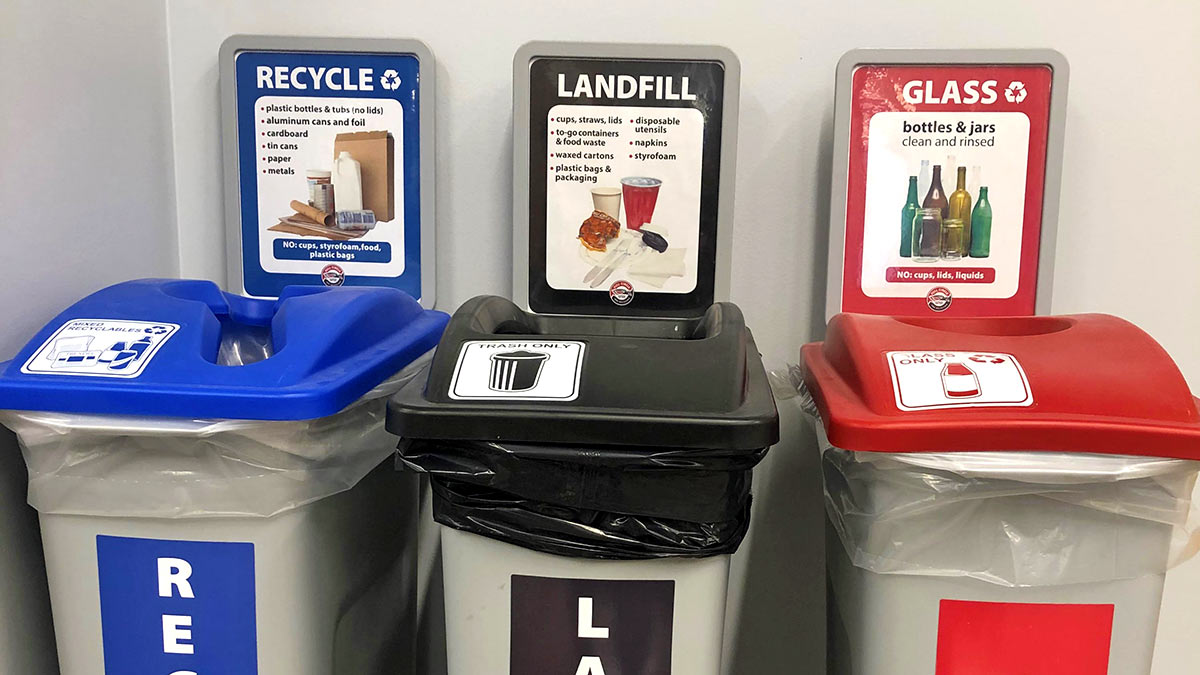Trashing the Trash Cans!
February 3, 2020
Staff from across campus are saying goodbye to their trash cans* – and we’ve already gotten rid of ours at Facilities, Management and Planning!
SOU has a centralized trash and recycling system. Centralized trash and recycling stations reduce the number of liners, save staff time in emptying trash cans and helps staff and students to think about how they handle their trash. To complement the centralized waste stations, the next step is to remove individual trash cans from offices on campus.
Centralized waste stations reduce the number of liners, save staff time in emptying trash cans and helps staff and students to think about how they handle their trash. To complement the centralized waste stations, the next step is to remove individual trash cans from offices on campus. Studies have demonstrated that this is good for reducing costs as well as the environment and is a small, but critical, step for any building or office to achieve sustainability credentials.

How are we rolling this out?
- Facilities Management and Planning has measured the trash and recycling from a number of office buildings (not housing) on campus to help demonstrate the positive benefit that the removal of individual trash cans will have.
- We are looking at the contamination of recycling and where it is coming from at the recycling center on campus to help with signage to help everyone understand what can be recycled.
- We are evaluating the centrally located trash and recycling locations in each building to make sure they are available, accessible and labeled appropriately before removing individual trash cans.
Benefits of removing desk trash and recycling cans:
- Increases level of awareness among employees. Staff must walk to central points where signage and sorting information is very clear. By thinking about what they are doing with their trash, the quality of recyclate increases, which is good for the environment, and good for the University in reducing the cost.
- Increases recycling rates – studies suggest centralized points mean we end up collecting 20% more recyclables.
- Reduces contamination in recyclate.
- Reduces disposal costs though more recycling.
- Reduces custodial costs – studies suggest that by making employees more aware and responsible, custodial savings averaging $50 per person per year can be realized; if 500 people participate, this produces $25,000 in annual savings. There are also savings on the plastic bag expense and reduced waste management costs, as well as freeing up custodial staff for other necessary duties.
*We are finding reuse opportunities for the trash cans.




